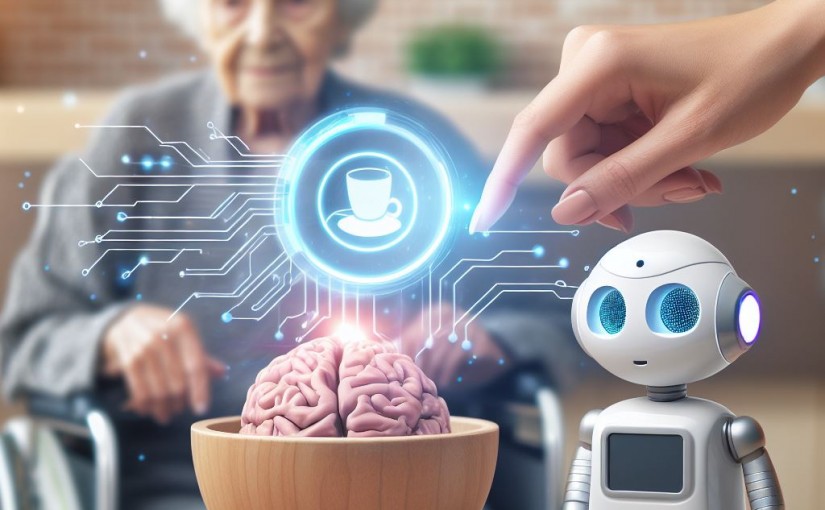As the global population ages, the challenges associated with dementia are becoming increasingly prevalent. In response to this growing concern, researchers and technologists are joining forces to develop innovative solutions in dementia care. This article delves into the latest developments in the field, exploring new treatment approaches, medications, and technological advancements aimed at improving the quality of life for individuals with dementia.
New Treatment Approaches
Traditionally, dementia care has focused on symptomatic treatments to manage cognitive decline. However, recent research has expanded the horizons to include lifestyle interventions as a promising avenue. The FINGER trial, a groundbreaking study, advocates for a holistic approach. It suggests that a combination of physical exercise, cognitive training, a balanced diet, and vascular risk monitoring can significantly reduce the risk of cognitive decline in older individuals.
Moreover, there is a shift toward exploring novel drug treatments for dementia. Notably, the FDA-approved drug Aducanumab represents a breakthrough in Alzheimer’s disease treatment. This medication targets beta-amyloid plaques, a characteristic feature of the disease, potentially slowing its progression. Ongoing research continues to investigate other pharmaceutical interventions with the hope of identifying treatments for various forms of dementia.
Medications
Building on the success of Aducanumab, several other medications are undergoing rigorous evaluation for their efficacy in dementia treatment. One such drug is LMTX, which shows promise in modifying the course of Alzheimer’s disease by inhibiting the aggregation of tau protein, another critical factor in neurodegeneration.
Additionally, researchers are exploring the repurposing of existing drugs for dementia treatment. For instance, the diabetes drug Leuco-methylthioninium bis(hydromethanesulfonate) (LMTM) is being investigated for its potential neuroprotective effects. Repurposing existing drugs offers a cost-effective and expedited approach to introducing new treatments to the market.
Technological Advancements
Technology is playing a transformative role in enhancing dementia care, providing valuable support for both individuals with dementia and their caregivers. Wearable devices, such as smartwatches and fitness trackers, are being adapted to monitor vital signs and detect changes in behavior that may indicate cognitive decline. Real-time data from these devices enable early intervention and the development of personalized care plans.
Virtual reality (VR) is emerging as a groundbreaking tool in dementia care. Developers are creating immersive VR environments designed to trigger positive memories and stimulate cognitive function. Studies have shown that these interventions can significantly improve mood and cognitive abilities in individuals with dementia, offering a novel approach to enhancing their quality of life.
Artificial intelligence (AI) is another technological frontier that holds great promise. Machine learning algorithms are being deployed to analyze extensive datasets, aiding in the early diagnosis of dementia. By identifying subtle patterns in medical images and patient records, AI assists healthcare professionals in making more accurate and timely assessments, ultimately improving patient outcomes.
Challenges and Future Directions
While there is optimism about the advancements in dementia care, challenges remain. The heterogeneity of dementia, with various forms such as Alzheimer’s and vascular dementia, complicates the development of universal treatments. Additionally, the ethical considerations surrounding new medications and technologies, including issues of access and affordability, require careful attention.
Looking ahead, the future of dementia care is likely to involve a combination of these emerging strategies. Personalized medicine, where treatments are tailored to an individual’s specific type of dementia and genetic makeup, holds promise. Collaborative efforts between researchers, healthcare professionals, and technologists will be crucial in overcoming current challenges and continuing to push the boundaries of dementia care.
Conclusion
In conclusion, the landscape of dementia care is undergoing rapid transformation, driven by research breakthroughs and technological innovations. From lifestyle interventions and groundbreaking medications to the integration of wearable devices and AI, these developments offer hope for a future where the impact of dementia can be mitigated, and individuals affected can enjoy an improved quality of life.
For those interested in staying updated on the latest developments in dementia care, reputable sources such as the Alzheimer’s Association and the National Center for Biotechnology Information (NCBI) provide valuable insights and resources.
Did You Know?
Memo24 pill reminder service is an automated phone call reminder service, it is used around the world to help the elderly live a more independent life at home.
Memo24 is simple to set up and affordable, with no subscription and no hidden fees.

